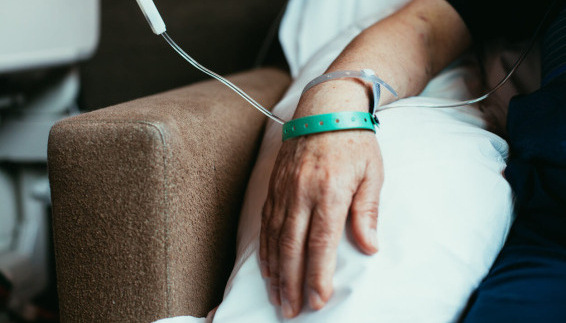Opdivo and Yervoy Benefits: Q&A With Sean Marchese, RN

Researchers from the Netherlands recently published a study on the effectiveness of immunotherapy drugs Opdivo and Yervoy when taken in combination in “the real-world setting.” Published in the journal Lung Cancer, the study found the nivolumab and ipilimumab combination approach was as effective among the real-world population as it had been in controlled trials.
Immunotherapy drugs have yielded positive results for mesothelioma patients. Survivors and doctors alike have shared their personal experiences and professional observations with The Mesothelioma Center, emphasizing the promise these new mesothelioma treatments show.
Survivor Ron Green shared his experience with another immunotherapy drug, pembrolizumab, with us: “I started Keytruda, and almost immediately things changed for the better. You could feel it. Something worked for me.”
Cardiothoracic surgeon Dr. Jeffrey Velotta noted, “I do think immunotherapy and other targeted therapies towards proteins that are on the surfaces, basically, of mesothelioma cells are going to be the future.”
Mesothelioma researcher Anna Nowak, PhD noted, “The most impressive advancement for checkpoint blockade has been the demonstration that for people with sarcomatoid and biphasic mesothelioma, we can double survival with the combination of Yervoy and Opdivo.”
We asked oncology medical writer Sean Marchese, RN, to break down the findings for us and their significance:
Q: What key takeaways should mesothelioma survivors take from the overall survival and “disease control rates” data reported in the study?
Opdivo plus Yervoy showed promising efficacy in the real-world setting. The combination improved overall mesothelioma survival. The disease control rate at 12 weeks was 56%, indicating a substantial proportion of patients with disease stabilization.
However, survivors need to be aware of the relatively high rate of treatment-related adverse events. The study found 30.3% of patients experienced grade 3–4 events.
Q: Should patients interested in Opdivo and Yervoy be concerned about the rates of treatment-related adverse events reported?
Mesothelioma patients considering Opdivo and Yervoy should be mindful of the reported 30.3% incidence of grade 3–4 TRAEs. The decision to pursue this combination therapy should involve a thorough discussion with healthcare providers, weighing the potential benefits against the risks.
Q: What questions about taking Opdivo and Yervoy should survivors and their loved ones ask their doctors?
Patients and their loved ones should inquire about personalized risk assessments for TRAEs based on their individual health profiles. Understand the management strategies for adverse events and early signs to watch for. Discussions should include alternative mesothelioma treatment options, considering individual patient characteristics.
Q: How can survivors find a specialist with expertise in treating mesothelioma with immunotherapy?
The Mesothelioma Center’s Patient Advocates can connect patients and their families with mesothelioma specialists with experience in immunotherapy. Often, they can help with appointment scheduling and guiding patients and their families through the process.
Referrals from primary healthcare providers or oncologists with experience in mesothelioma can also help guide patients to appropriate specialists. Another avenue is utilizing reputable medical databases or networks to identify oncologists specializing in mesothelioma and immunotherapy.